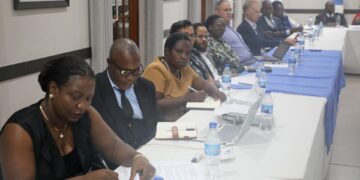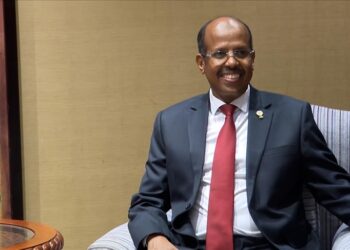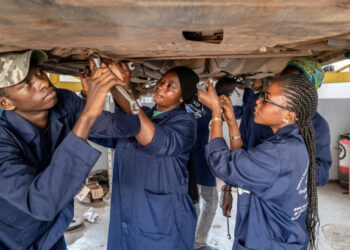It’s a well-known fact at this point that Nigeria is a big country blessed with natural resources. However, asides the population of over 215 million that is the telltale of a promising market, Nigeria is known for something else embedded in this population – talented individuals.
Whenever the conversation changes to the topic of skills, ‘Nigeria’ is most likely to come up in the conversation. Skills are the core of the (small and medium) businesses which makes up the informal sector that accounts for 65% of Nigeria’s GDP, and 80.4% of employment. Skills (via the informal sector) are in fact a major component that has been bolstering Nigeria’s economic resilience despite the state of the economy over the years.
In the industries where skills are often on display and celebrated such as in the sports, movie and music industries where the Nigeria and its citizens are thriving at the highest levels, the result is a generation of youths eager to venture into these industries, push the bar higher and make a name for themselves. This should not be discounted merely to the fact that the sports and entertainment industries garner a lot of attention, rather focus should be on the inspirational effect of seeing a compatriot succeeding and acknowledged in a chosen area of occupation.
This recognition of talented compatriots and the perception of what success is are reasons, I believe, a prominent sport such as car racing is yet to become a staple in Nigeria – despite the case to be made if you’ve ever experienced driving in Lagos. On the other hand, it is also why the application of skills in illegal ways will only increase if the honorable application is not recognized, and excellence in trade is not celebrated and rewarded as the true definition of success.
Another downside to Nigeria not celebrating the abundance and quality of skills it has is the exodus of talent to other countries. And while we would want to claim Anthony Joshua, Bukayo Saka, Giannis Antetokounmpo or even The Weekend, they are all plying their trade in countries where their talents are seemingly more appreciated. But even more so are the droves of healthcare workers, engineers, bankers, technicians and professionals from all sectors of industry who have left the shores of Nigeria for where they perceive their talent has the tendency to be more appreciated.
In the end it all comes down to value. While pay is the most critical value that any skilled individual hopes to get, the display, recognition and reward of excellence in trade is just as important as it raises the value of these skills to employers, and hence increasing pay, while also raising the performance standards expected which results to increased productivity of the industries hiring these skills – a true win-win for society.
This is why partaking in WorldSkills is arguably just as important to Nigeria as partaking in the AFCON or FIFA World Cup. While more entertaining skills will naturally continue to get majority of the attention and the valuation of those skills continue to rise, it is important for Nigeria, and any African country for that matter, to equally strive to put other trade oriented skills on display in order to trigger a ripple effect that ends with higher standards of living, improved productivity, industrialization and hence a thriving economy in the long run.
Much like FIFA for football, WorldSkills (worldskills.org) is an international organization that is promoting skills through competitions on a global, continental and national level. Through these competitions, the skills of competitors from various nations are put to the test, acknowledging their skills and rewarding their excellence. At the same time WorldSkills brings together industries, governments and educators to establish a global standard for skills which is much needed the more the world becomes a global village.
If a young generation of youths can be inspired to take on honorable labor that is beneficial to society simply by recognizing and rewarding people performing those trades with excellence of skill, then it should be considered a priority to promote every honorable trade in a similar fashion. And in the case of Nigeria, hopefully, by doing this the right sort of attention can finally be given to the skills of its citizen.
The display of skills is arguably one of the many causes that, if Nigeria will raise the clarion, the youth will obey the call just as we vowed to do many years ago as we saluted at the flag.



















































































 EduTimes Africa, a product of Education Times Africa, is a magazine publication that aims to lend its support to close the yawning gap in Africa's educational development.
EduTimes Africa, a product of Education Times Africa, is a magazine publication that aims to lend its support to close the yawning gap in Africa's educational development.